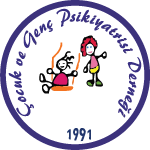ABSTRACT
Objectives:
In this study, it was aimed to investigate the effect of the specific learning disability (SLD) of children with and without the comorbidity of the SLD on the social skills in the attention deficit hyperactivity disorder (ADHD).
Materials and Methods:
Thirty children between the ages of 7 and 10 years, who were only monitored with the diagnosis of ADHD and 30 children with comorbidity of the SLD, (ADHD + SLD) were included in the study. ADHD symptoms of these children were controlled by the medical treatment. The researcher administered the Turkish Version of the Affective Disorders for School-age Children and Schizophrenia Interview Schedule-Now and Lifelong Version to the children and the diagnosis was made by clinical interview according to DSM-5. SLD battery was also performed to children who were suspected to have the diagnosis of SLD. “Socio-demographic Form” and “Social Skills Assessment scale (SSAS)” were given to the parents of all children included in the study.
Results:
Total mean score level of social skills was 216.96±52.83 in the ADHD + SLD group while it was found as 217±25.59 in the ADHD group, and statistically significant difference was not found in total and subscale scores between two groups (p>0.05). When all the patients (ADHD and ADHD + SLD) were assessed, total mean score of social skills was statistically found to be significantly higher in terms of to being female, having higher mother education, and making social activity.
Conclusion:
In our study, there was no statistically significant difference between ADHD and ADHD+SLD groups regarding total mean score and subscale scores of social skills. This may be related to the educational and medical treatment of the patients, or it is likely that SLD comorbidity does not cause additional difficulties in terms of social skills.
Keywords:
Attention deficit hyperactivity disorder, specific learning disability, social skill
References
1Aras Ş, Ünlü G, Varol Taş F. Çocuk ve ergen psikiyatri polikliniğine başvuran hastalarda belirtiler, tanılar ve tanıya yönelik incelemeler. J Clin Psy. 2007;10:28-37.
2Görker I, Korkmazlar Ü, Durukan M, Aydoğdu A. Çocuk ve ergen polikliniğine başvuran ergenlerde belirti ve tanı dağılımı. Klin Psikiyatr. 2004;7:103-110.
3Silver CH, Ruff RM, Iverson GL, Barth JT, Broshek DK, Bush SS, Koffler SP, Reynolds CR. Learning disabilities: the need for neuropsychological evaluation. NAN Policy and Planning Comittee. Arch Clin Neuropsychol. 2007;23:217-219.
4Bilgiç A, Kılıç BG, Gürkan K, Aysev A. Dikkat eksikliği hiperaktivite bozukluğu tanısı konulan bir klinik örneklemde yıkıcı davranış bozuklukları ve özgül öğrenme bozuklukları. Çocuk ve Gençlik Ruh Sağlığı Derg. 2006;13:54-59.
5Erman Ö. Öğrenme bozukluğu ve aşırı hareketlilik bozukluğu olgularının nörofizyolojik ve nöropsikolojik yöntemlerle incelenmesi. 1997.
6Ghisi M, Bottesi G, Re AM, Cerea S, Mammarella IC. Socioemotional Features and Resilience in İtalian University Students with and without Dyslexia. Front Psychol. 2016;7:478.
7Shea B, Wiener J. Social Exile: the cycle of peer victmization for boys with ADHD. Can J Sch Psychol. 2003;18:55-90.
8Treuting JJ, Hinshaw SP. Depression and self-esteem in boys with attention-deficit/hyperactivity disorder: associations with comorbid aggression and explanatory attributional mechanisms. J Abnorm Child Psychol. 2001;29:23-39.
9Sorias O. Sosyal beceriler ve değerlendirme yöntemleri. Psikol Derg. 1986;5:24-29.
10Korkut F. İletişim becerileri eğitiminin lise öğrencilerinin iletişim becerilerini değerlendirmelerine etkisi. 3P Derg. 1996;4:191-198.
11Akçamete G, Avcıoğlu H. Sosyal becerileri değerlendirme ölçeğinin (7-12 yaş) geçerlik ve güvenirlik çalışması. Abant İzzet Baysal Üniversitesi Eğitim Fakültesi Dergisi. 2005;5:61-77.
12Nijmeijer JS, Minderaa RB, Buitelaar JK, Mulligan A, Hartman CA, Hoekstra PJ. Attention-deficit/hyperactivity disorder and social dysfunctioning. Clin Psychol Rev. 2008;28:692-708.
13Pennington BF, Van Orden GC, Smith SD, Green PA, Haith PP. Phonological processing skills and deficits in adult dyslexics. Child Dev Dec. 1990;61:1753-1778.
14Frankel F, Myatt R, Cantwell DP, Feinberg DT. Parent-assisted transfer of children’s social skills training: effects on children with and without attention-deficit hyperactivity disorder. J Am Acad Child Adolesc Psychiatry. 1997;36:1056-1064.
15Thorkildsen R. Using an interactive videodisc program to teach social skills to handicapped children. Am Ann Deaf. 1985;140:383-385.
16Wiener J. Do peer relationships foster behavioral adjustment in children with learning disabilities? Learn Disabil Q. 2004;27:21-30.
17Özkardeş Güngörmüş O. Türkiye’de özel öğrenme güçlüğüne ilişkin yapılan araştırmaların betimsel analizi. Boğaziçi Üniversitesi Eğitim Derg. 2012;30:124-153.
18Kaufman J, Birmaher B, Brent D Rao U, Flynn C, Moreci P, Williamson D, Ryan N. Schedule for Affective Disorders and Schizophrenia for School-Age Children-Present and Lifetime Version (K-SADS-PL): initial reliability and validity data. J Am Acad Child Adolesc Psychiatry. 1997;36:980-988.
19Gökler B, Ünal F, Pehlivantürk B, Kültür Çengel E, Akdemir D, Taner Y. Okul Çağı Çocukları İçin Duygulanım Bozuklukları ve Şizofreni Görüşme Çizelgesi-Şimdi ve Yaşam Boyu Şekli-Türkçe Uyarlamasının Geçerlik ve Güvenirliliği. Çocuk ve Gençlik Ruh Sağlığı Derg. 2004;11:109-116.
20Turgut S, Erdem G, Karakaş S. Özgül Öğrenme Güçlüğü (ÖÖG) Dikkat Eksikliği Hiperaktivite Bozukluğu (DEHB) birlikteliği ve kontrol gruplarının ÖÖG bataryası ile belirlenen profilleri. Çocuk ve Gençlik Ruh Sağlığı Derg. 2010;17:13-25.
21Ercan ES, Mukaddes N, Yankı Y ve ark. Dikkat Eksikliği Hiperaktivite Bozukluğu. In: Çocuk ve Ergen Ruh Sağlığı ve Hastalıkları. ed: Ercan ES. Ankara: Türkiye Çocuk ve Genç Psikiyatrisi Derneği; 2016;33-55.
22Kılıç BG. Özgül Öğrenme Bozukluğu. In:Çocuk ve Ergen Ruh Sağlığı ve Hastalıkları. ed : Akay AP, Ercan ES, Ankara: Türkiye Çocuk ve Genç Psikiyatrisi Derneği; 2016;87-94.
23Biederman J Mick E, Faraone SV, Braaten E, Doyle A, Spencer T, Wilens TE, Frazier E, Johnson MA. Influence of gender on attention deficit hyperactivity disorder in children referred to a psychiatric clinic. Am J Psychiatry 2002;159:36-42.
24Newcorn J, Halperin J, Jensen PS Abikoff HB, Arnold LE, Cantwell DP, Conners CK, Elliott GR, Epstein JN, Greenhill LL, Hechtman L, Hinshaw SP, Hoza B, Kraemer HC, Pelham WE, Severe JB, Swanson JM, Wells KC, Wigal T, Vitiello B. Symptom profiles in children with ADHD: effects of comorbidity and gender. J Am Acad Child Adolesc Psychiatry. 2001;40:137-146.
25Sürücü Ö, Gündoğdu B. Öğrenme Bozuklukları. In: Çocuk ve Ergen Psikiyatrisi Temel Kitabı. ed: Çetin FÇ. Ankara: Hekimler Yayın Birliği; 2008;216-229.
26Silver LB. Developmental Learning Disorder, Child and Adolescent Psychiatry A Comprehensive Textbook. M Lewis (Ed), Baltimore, Williams &Wilkins. 1996;520-526.
27Shaywitz SE, Shaywitz BA, Fletcher JM Escobar MD. Prevalence of reading disability in boys and girls. Results of the Connecticut Longitudinal Study. JAMA. 1990;264:998-1002.
28Koçkar İ, Aydın Z. Ebeveyn kabul ve reddi, benlik saygısı ve psikolojik uyum: öğrenme güçlüğü olan çocuklarla diyabetik çocukların karşılaştırılması. Yayınlanmamış doktora tezi. Orta Doğu Teknik Üniversitesi, Ankara. 2006.
29Turgut S. Özgül öğrenme güçlüğü’nde nöropsikolojik profil. Yayınlanmamış yüksek lisans tezi. Hacettepe Üniversitesi, Ankara. 2008.
30Büyükaslan A. Dikkat eksikliği hiperaktivite bozukluğu olan ilköğretim çocuklarında duygusal zeka ile sosyal beceri bileşenlerinin değerlendirilmesi. Marmara Üniversitesi Tıp Fakültesi Çocuk ve Ergen Ruh Sağlığı Ve Hastalıkları Anabilim Dalı. (Yayınlanmamış uzmanlık tezi) İstanbul. 2015.
31Solanto MV Pope-Boyd SA, Tryon WW, Stepak B. Social functioning in predominantly inattentive and combined subtypes of children with ADHD. Journal Atten Disord. 2009;13:27-35.
32Phillipsen LC, Bridges KS, McLemore G. Saponaro LA. Perceptions of social behavior and peer acceptance in kindergarten. Journal of Research in Childhood Education. 1999;14:68-77.
33Park SY, Cheah CSL. Korean mothers’ proactive socialization beliefs regarding preschoolers’ social skills. International Journal of Behavioral Development. 2005;29:24-34.
34Susan M. McHale, Ann C. Crouter, Kristina Kupanoff Parents’ involvement in adolescents’ peer relationships: a comparison of mothers’ and fathers’ roles. Journal of Marriage and Family, 2001;63:655-668.
35Chaplin TM, Cole PM, Zahn-Waxler C. Parental socialization of emotion expression: gender differences and relations to child adjustment. Emotion. 2005;5:80-88.
36Mercurio CM. Guiding boys in theearly years to lead healthy emotion allives. Early Childhood Education Journal. 2003;30:255-258.
37Baran G. On yaş çocuklarında davranış bozuklukları ile benlik kavramının gelişimi arasındaki ilişki üzerine bir çalışma. Ankara Üniversitesi Fen Bilimleri Enstitüsü Ev Ekonomisi Ana Bilim Dalı. Yüksek lisans tezi. Ankara. 1989.
38Karaca NH, Gündüz A, Aral N. Okul öncesi dönem çocuklarının sosyal davranışının incelenmesi. Kuramsal Eğitim Bilim. 2011;4:65-76.
39Kara Y, Çam F. Yaratıcı drama yönteminin bazı sosyal becerilerin kazandırılmasına etkisi. Hacettepe Üniversitesi Eğitim Fakültesi Dergisi. 2007;32:145-155.
40Ryan GJ, Dzewaltowski DA. Comparing the relationship between different types of self-efficacy and physical activity in youth. Health Educ Behav. 2002;29:49-504.
41Allison KR, Dwyer JJ, Makin S. Self-efficacy and participation in vigorous physical activity by high school students. Health Educ Behav. 1999;26:12-24.



